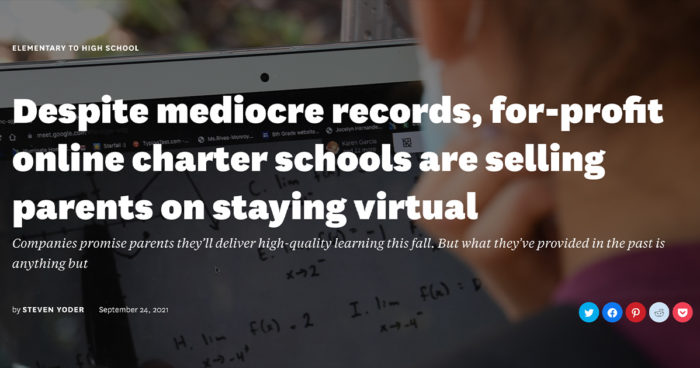By Steven Yoder

Advocates want to move toward funding virtual schools based on performance. The National Alliance for Public Charter Schools, a charter advocacy group, issued a document in 2016 along with two other organizations asking states to establish performance-based funding systems that pay virtual charters based on metrics like course completion and calling on charter authorizers to close chronically underperforming schools. The alliance’s leaders have complained that problems with virtual charters are giving the sector a bad name.
A few states have started moving in this direction. At least six — Florida, Minnesota, Missouri, New Hampshire, Texas and Utah — have created at least some performance-based funding mechanisms for virtual schools, according to the Education Commission of the States, which tracks state education policy. Under a 2018 law in Missouri, for example, virtual schools are paid a prorated monthly cost based on students’ completion of assignments and assessments.
But some education experts are skeptical that such changes will make a difference. “As soon as you put profit in the mix, then you put marketing in the mix,” said Carol Corbett Burris, executive director of the Network for Public Education, which issued a report critical of for-profit charters in March 2021. “A lot of these parents, I think, are victims. They are victims to the marketing push.” She wants to see online learning taken out of the hands of for-profits altogether.
